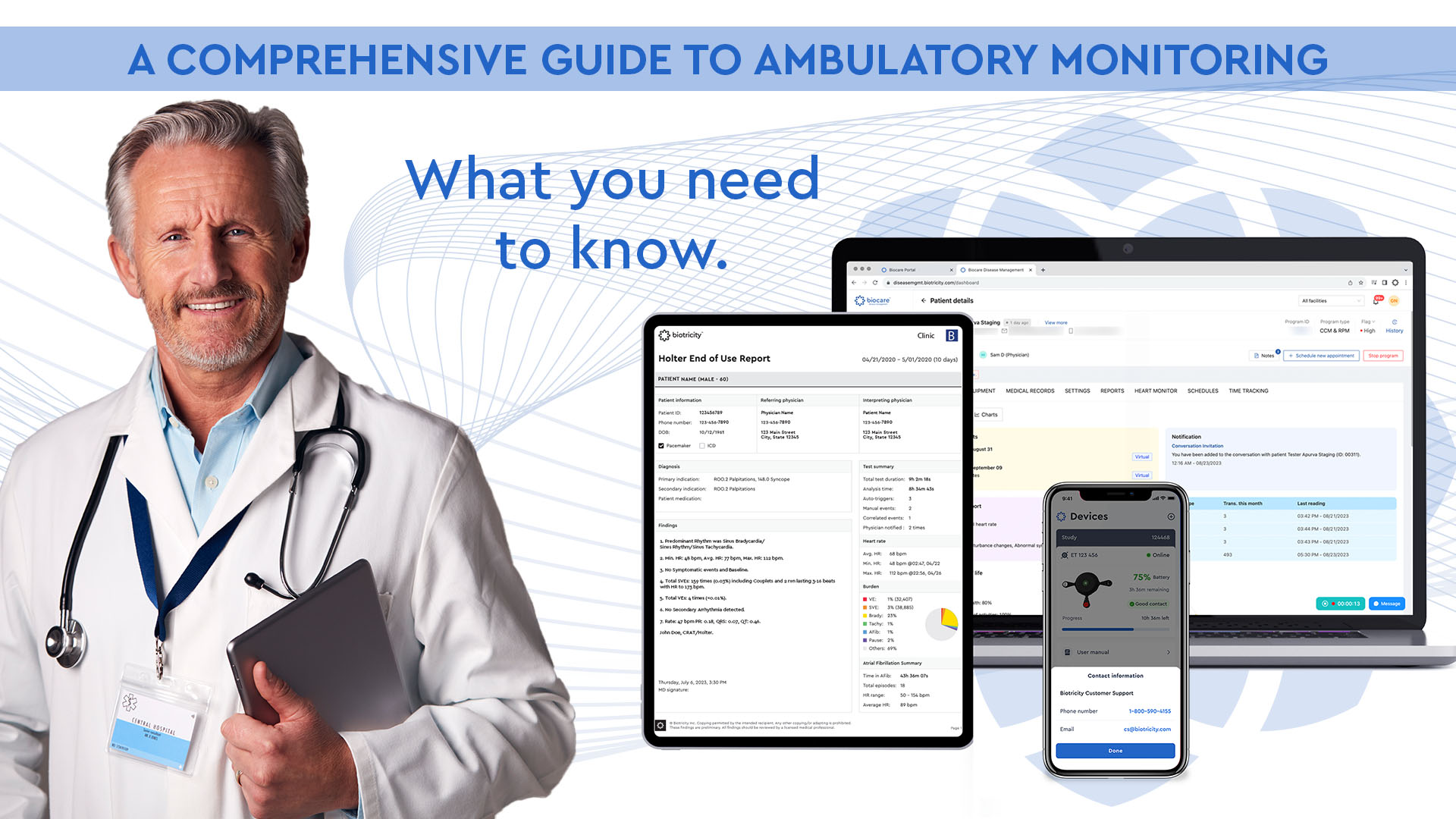Ambulatory monitoring refers to the continuous tracking of physiological functions while a patient goes about their regular activities. One of the most common applications is ambulatory ECG monitoring, which allows healthcare providers to monitor heart activity over extended periods, often to detect intermittent or hard-to-catch arrhythmias.
The Hidden Danger of Silent Arrhythmias & Benefits of Ambulatory Monitoring
Many people with heart rhythm disorders (arrhythmias) don’t experience any noticeable symptoms. These “silent” arrhythmias can be particularly dangerous because they often go undetected until they cause a serious complication, such as a stroke.
Ambulatory monitoring refers to the continuous tracking of physiological functions while a patient goes about their regular activities. One of the most common applications is ambulatory cardiac monitoring, which allows healthcare providers to monitor heart activity over extended periods, often to detect intermittent or hard-to-catch arrhythmias.
Types of Ambulatory Cardiac Monitoring Studies:
- Holter: Provides continuous ECG recording for 24-48 hours (extended Holter 3-7 days, or 8-15 days), capturing a comprehensive view of your heart’s activity. Typically, patients wear the device and return it after the study is complete for data download and analysis.
- Cardiac Outpatient Monitoring: Offers real-time monitoring for extended periods, enabling immediate detection of any irregularities. Patients do not have to return the device for data analysis because of connectivity allows for real time data transmission.
- Event: Non-continuous monitoring used to detect irregular heart rhythms by recording the heart’s activity during specific symptoms or events. Event monitors capture data in response, allowing healthcare providers to analyze the recordings for diagnostic purposes.
Benefits of Ambulatory Cardiac Monitoring
- Longer Term Continuous Data Collection: Unlike traditional monitoring, ambulatory devices collect data over long periods, increasing the chances of detecting irregularities. Even if you don’t experience noticeable symptoms, untreated arrhythmias can affect your heart’s efficiency and overall health. Unlike traditional monitoring, ambulatory devices collect data over long periods, increasing the chances of detecting irregularities.
- Non-invasive: Patients can wear these monitors without the need for invasive procedures, allowing for more comfortable and convenient monitoring. Knowing your heart rhythm is being monitored can provide reassurance and reduce anxiety.
- Real-world Insights: Because ambulatory monitors track data while patients are in their natural environments, they provide more accurate insights into how daily activities affect heart health.
Who Should Use Ambulatory Cardiac Monitoring?
Ambulatory Cardiac Monitoring is ideal for patients who experience intermittent symptoms, like dizziness or palpitations, that are difficult to capture in a doctor’s office. It’s also useful for monitoring the effectiveness of treatments or medications.
If you have any risk factors for heart disease or a family history of arrhythmias, talk to your doctor about the benefits of ambulatory cardiac monitoring. Biotricity’s innovative solutions can help protect your heart health and provide you with peace of mind.






